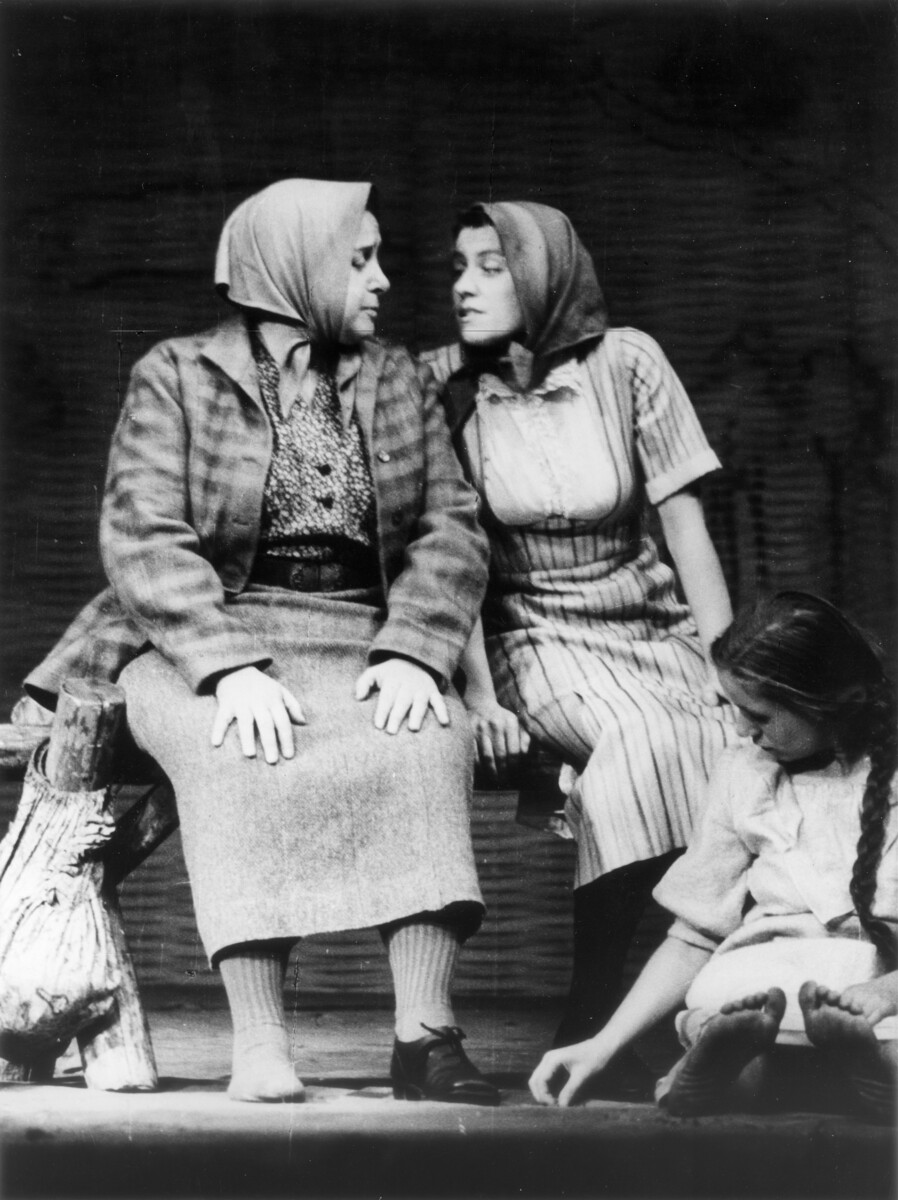Source

Source: Photo: Willi Saeger.
bpk-Bildagentur, image number
10006781. For rights inquiries, please contact Art Resource at
requests@artres.com (North America) or bpk-Bildagentur at
kontakt@bpk-bildagentur.de (for all other countries).
The Berliner Ensemble was founded by actress Helene Weigel and her playwright husband Bertolt Brecht in 1949. Brecht was one of the most famous playwrights of the twentieth century. In 1933, after the Nazis seized power, he and his family moved to Denmark. After Nazi Germany invaded Denmark, they fled to American exile, but then moved to Switzerland after Brecht had been summoned to appear before the House Un-American Activities Committee (HUAC) in 1947. In East Berlin, Brecht was initially welcomed with open arms. In the 1950s, several of his plays were banned in the GDR, however, although Brecht had sworn his allegiance to the state – albeit ambivalently – during the June 17, 1953 uprisings. The theater on Schiffbauerdamm has been home to the Berliner Ensemble since 1954. This photograph shows the premiere of Brecht’s “Herr Puntila and his Man Matti,” on November 8, 1949. The play, a comedy, was the first to be staged at the new Berliner Ensemble. It was one of Brecht's most popular plays and saw many productions in both the GDR and the FRG.

Source: Photo: Willi Saeger.
bpk-Bildagentur, image number
10006781. For rights inquiries, please contact Art Resource at
requests@artres.com (North America) or bpk-Bildagentur at
kontakt@bpk-bildagentur.de (for all other countries).
© bpk / Willi Saeger